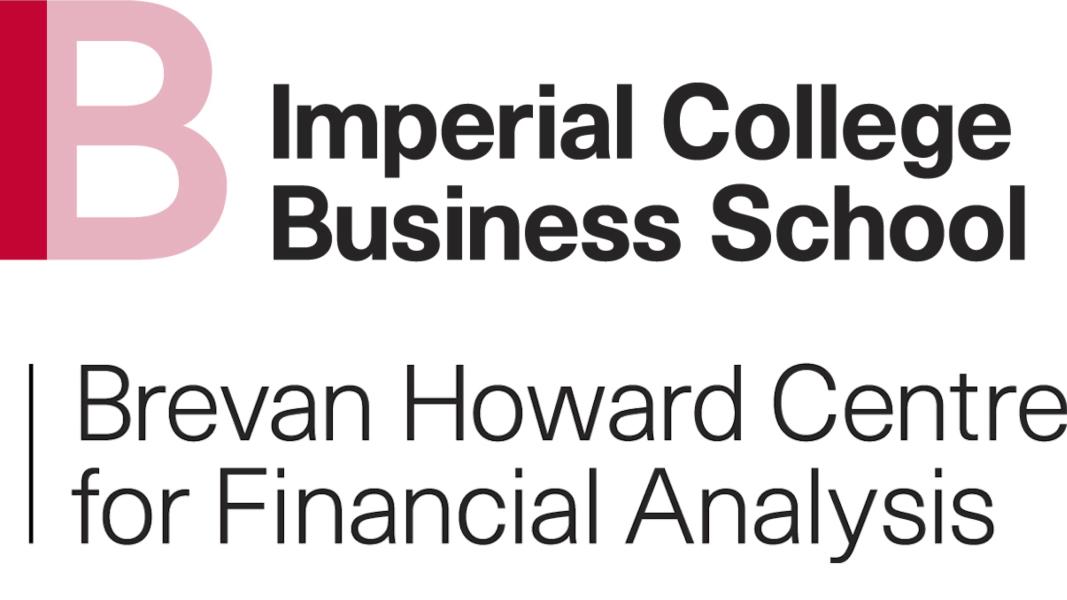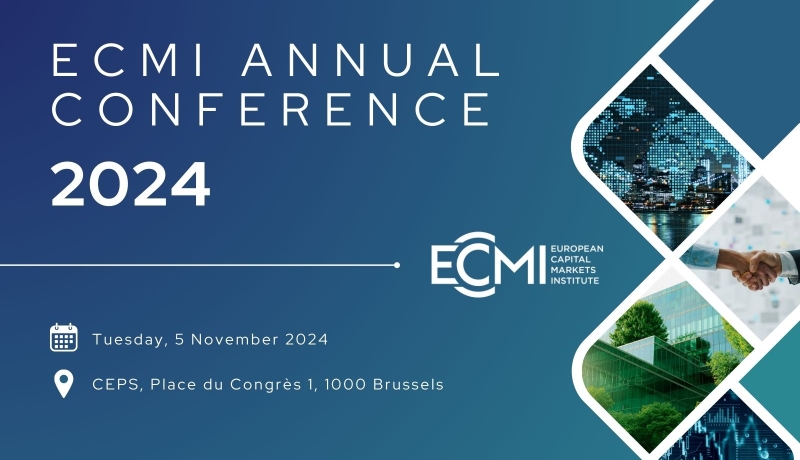Europe’s capital markets in transition: driving competitiveness through innovation and sustainability
This year’s ECMI Annual Conference will address the most pressing challenges and opportunities shaping Europe's capital markets: the potential of a 28th regime to enhance market integration, the role of tokenisation in transforming financial services, and the impact of the Corporate Sustainability Reporting Directive (CSRD) on green compliance. Through expert panels and discussions, this conference will explore how to foster competitiveness, innovation, and transparency while balancing regulatory requirements and market dynamics in an evolving financial ecosystem. Keynote speeches will focus on the broader perspective, as well as addressing the reaction to CMU-related reports. These elements will also permeate discussions throughout the day.
AGENDA CALL FOR SPONSORSHIP CONFERENCE REPORT
9:45 – 10:00 Opening remarks
10:00 – 10:30 Keynote speech
- Adam Kostyál, President, Nasdaq Stockholm
10:30 – 11:30 First session: A 28th regime for Europe’s capital markets
A 28th regime for financial services would provide an alternative regulatory concept for creating a single market for capital, complementing efforts to harmonise national financial sector legislation.
This optional EU legal framework aims to enable Member States and financial players to either opt for applying the uniform EU regime (with authorisation and supervision directly entrusted to ESMA) or to continue to be subject to national requirements. For example, asset managers – many of whom operate in the EU on the basis of integrated models via entities established and accredited in several Member States – could opt for a 28th European supervision regime allowing them to be supervised as integrated European groups. If efficiently implemented, this opt-in should allow for less fragmented supervision, benefiting the EU’s capital markets and their competitiveness.
Is a 28th regime the way forward for overcoming fragmentation and to create a genuine Capital Markets Union? Can competitiveness be restored to Europe’s capital markets with a 28th regime? How would such a regime be implemented in practice and are there any prerequisites? What should be the starting point?
Speakers:
- Christian Noyer, Honorary Governor, Bank of France
- Luca Filippa, Director General, Consob
- Josina Kamerling, Head of Regulatory Outreach EMEA, CFA Institute
Moderated by Karel Lannoo, General Manager, ECMI and CEO, CEPS.
11:30 – 12:00 Coffee break
12:00 – 13:00 Second session: The tokenisation of financial assets – what are the benefits and risks for capital markets?
Tokenisation – recording the ownership for traditional assets on a distributed ledger – is transforming how financial services operate. It also democratises access to financial products that were previously less accessible and improves how financial digital infrastructures function.
The EU Markets in Crypto-Assets (MiCA) Regulation and the adoption of a pilot regime for market infrastructures to explore the potential of both distributed ledger technology (DLT) and tokenised securities, aim to provide a comprehensive legal framework that guarantees investor protection, market integrity and financial stability, while fostering innovation and competition within the EU’s digital financial ecosystem. Although tokenisation offers numerous potential benefits, there are also risks and challenges that should be addressed.
What are the opportunities stemming from tokenisation, and what are the benefits for investors and market infrastructures? What are the barriers hindering the development of DLT-based capital markets and stopping securities markets from more widely adopting DLT? What role can interoperability play in both connecting different DLT-based platforms and building common standards? How can regulation enable tokenisation and what is the potential role for public-private partnerships? Can the EU play a leading role in tokenisation?
Speakers:
- Heinz Konzett, Senior Legal Expert, Liechtenstein State Administration
- Tony Ashraf, Managing Director, Digital Asset Transformation, BlackRock
- Nadine Wilke, Co-Founder & CGO, Particula
- Erik Veerman, Senior Consultant Market Infrastructures Securities and Digital Assets, ABN AMRO
Moderated by Apostolos Thomadakis, Head of Research, ECMI and Research Fellow, CEPS.
13:00 – 14:00 Lunch
14:00 – 15:00 Third session: Corporate sustainability reporting and the cost of green compliance
The Corporate Sustainability Reporting Directive (CSRD), that entered into force in January 2023, modernises and strengthens the rules on the social and environmental information that companies have to report. Large EU companies, listed SMEs and some non-EU companies will now be required to report on sustainability, publish regular reports on the social and environmental risks they face and how their activities impact people and the environment.
Since January 2024, the Directive has been applicable to large public interest entities which are already subject to the Non-Financial Reporting Directive (NFRD). As of January 2025 and 2026, large companies not currently subject to NFRD, as well as listed SMES, will be required to report. Overall, CSRD will likely apply to over 50 000 companies.
What are the main challenges that companies are facing when it comes to complying with CSRD? How are organisations investing in their capabilities to meet their reporting requirements? How are firms identifying their impacts on people and the environment? Will CSRD achieve enhanced transparency and mitigate the risk of greenwashing? What are the compliance costs of CSRD? What we can learn from the CSRD’s predecessor, the NFRD?
Speakers:
- Thomas Dodd, Team Leader, Sustainability Reporting, DG FISMA
- Chiara del Prete, Sustainability Reporting Technical Expert Group Chair, EFRAG
- Bettina Grabmayr, Methodology and Research Director, EcoVadis
- Katrin Hummel, Professor of Accounting and Reporting, Vienna University of Economics and Business
Moderated by Apostolos Thomadakis, Head of Research, ECMI and Research Fellow, CEPS.
15:00 – 15:30 ECMI Best Paper 2024 Presentation
“Dangerous Liaisons? Debt Supply and Convenience Yield Spillovers in the Euro Area”
- Presented by Matthias Gnewuch, European Stability Mechanism
- Cristian Arcidiacono, University of Bern
- Matthieu Bellon, European Stability Mechanism
Moderated by Florencio López de Silanes, Professor of Finance and Dean of Academic Strategy, SKEMA Business School.
15:30 – 15:45 Closing remarks
Partners


Sponsors
Registration is free of charge for ECMI/ECRI/CEPS members, EU/national institutions, academia, and press. Other participants may be admitted for a fee of EUR 300.

